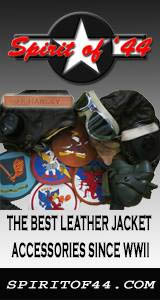Junkers Ju 87

The Junkers Ju 87 or Stuka (from Sturzkampfflugzeug, "dive bomber") was a two-seat (pilot and rear gunner)
German ground-attack aircraft. Designed by Hermann Pohlmann, the Stuka first flew in 1935 and made its combat
debut in 1936 as part of the Luftwaffe's Condor Legion during the Spanish Civil War.
The aircraft was easily recognizable by its inverted gull wings, fixed spatted undercarriage and its infamous
Jericho-Trompete ("Jericho Trumpet") wailing siren, becoming the propaganda symbol of German air power and the
Blitzkrieg victories of 1939-1942. The Stuka's design included several innovative features, including
automatic pull-up dive brakes under both wings to ensure that the plane recovered from its attack dive even
if the pilot blacked out from the high acceleration. Although sturdy, accurate, and very effective, the
Ju 87 was vulnerable to modern fighter aircraft, like many other dive bombers of the war. Its flaws became
apparent during the Battle of Britain; poor maneuverability, lack of speed and defensive armament meant
that the Stuka required a fighter escort to operate effectively.
The Stuka operated with further success after the Battle of Britain, and its potency as a precision
ground-attack aircraft became valuable to the German war effort in the Balkans Campaign, the African and
Mediterranean Theaters and the early stages of the Eastern Front campaigns where Allied fighter resistance was
disorganized and in short supply. However, once the Luftwaffe had lost air superiority on all fronts, the
Ju 87 once again became an easy target for enemy fighter aircraft. In spite of this, because there was no
better replacement, the type continued to be produced until 1944. By the end of the conflict, the Stuka
had been largely replaced by ground-attack versions of the Focke-Wulf Fw 190, but was still in use until
the last days of the war. An estimated 6,500 Ju 87s of all versions were built between 1936 and August
1944.

- Design & Structure
- Development
- Operational History
- Variants
- Users
- Specifications:
- Image Gallery

Sources:
Gunston, Bill - The Encyclodepia of the Worlds Combat aircraft, 1976, Chartwell Books, Inc., New York
Brown, Eric, Captain - Wings of the Luftwaffe , 1979, Airlife Publishing Ltd., Shrewsbury
, 1979, Airlife Publishing Ltd., Shrewsbury
Gunston, Bill & Wood, Tony - Hitler's Luftwaffe , 1977, Salamander
Books Ltd., London
, 1977, Salamander
Books Ltd., London
Donald, David - The Complete Encyclopedia Of World Aircraft, 1997, Brown Packaging Books Ltd., London
Wikipedia - Junkers Ju 87
Gunston, Bill - The Encyclodepia of the Worlds Combat aircraft, 1976, Chartwell Books, Inc., New York
Brown, Eric, Captain - Wings of the Luftwaffe
Gunston, Bill & Wood, Tony - Hitler's Luftwaffe
Donald, David - The Complete Encyclopedia Of World Aircraft, 1997, Brown Packaging Books Ltd., London
Wikipedia - Junkers Ju 87






